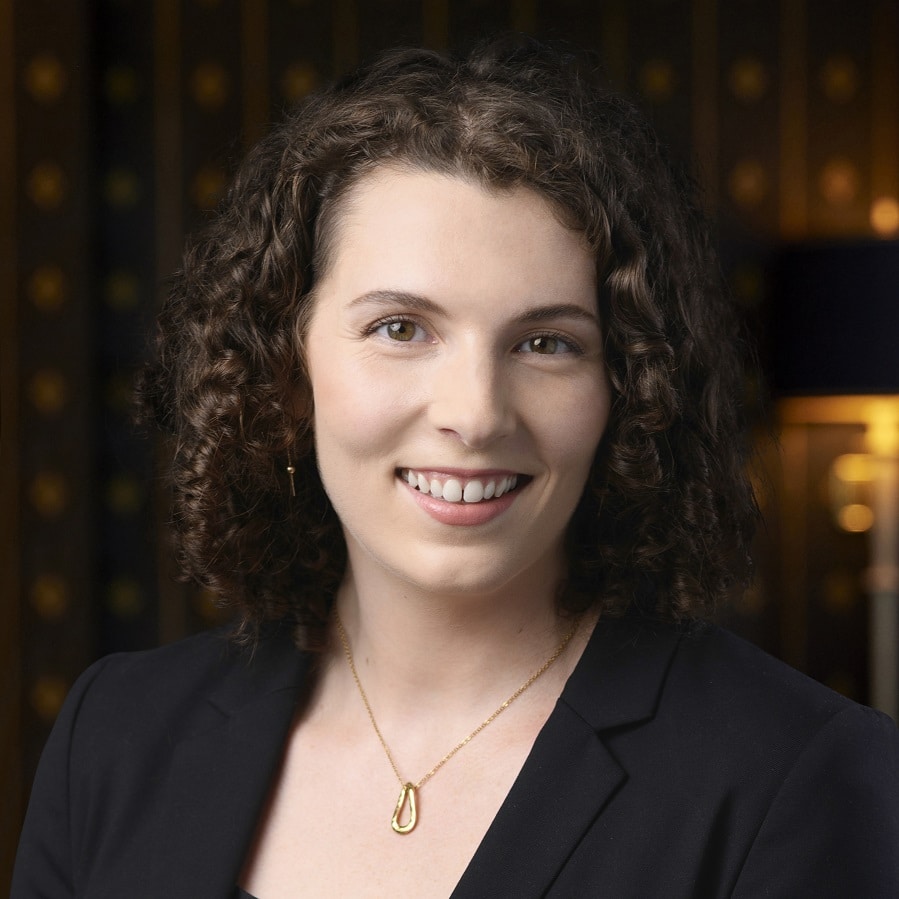UbiPark Pty Ltd v TMA Capital Australia Pty Ltd (No 2) [2023] FCA 885
2 August 2023
Federal Court of Australia
Moshinsky J
Highlight
A smartphone app is the subject of this battle between rival providers of car park access, in a rare example of a patent to a computer-implemented system being found valid, but in this case not infringed.
Background
TMA Capital Australia Pty Ltd (TMA) is the owner of a patent to a ‘system, method and computer program for an access control system’, including for car parks. UbiPark Pty Ltd (UbiPark) provides car park operators with a digital platform that allows drivers to access car parks using an UbiPark smartphone application.
TMA sent letters of demand to UbiPark and its carpark operator customers, threatening infringement proceedings based on, respectively, their provision and use of the UbiPark app. UbiPark then sued TMA for unjustified threats of patent infringement in relation to AU2019213335 (the Patent), seeking, amongst other things, injunctions restraining TMA from making further threats. TMA filed a cross-claim against UbiPark and its CEO for patent infringement and engaging in misleading conduct under the Australian Consumer Law (ACL). UbiPark amended its originating application to include challenges to the validity of the Patent, on the basis that it was not a “manner of manufacture”, and lacked inventive step and utility.
In February 2022, Justice Moshinsky granted the interlocutory injunction restraining TMA from making further threats, pending this decision on the merits. We reported on his Honour’s interlocutory decision in our 2022 Patent Case Summary.
In this decision on the merits, TMA’s infringement case failed. Its ACL claim was dismissed with the infringement case, and UbiPark’s unjustified threats case against TMA made out. TMA appealed the decision to the Full Federal Court on 9 October 2023.
Key Issues
Claim construction and infringement
Pivotal to the infringement case was the construction of various terms of the claims. While restricted to the facts of this case, the expert evidence and judicial consideration demonstrate the typical issues that arise when computer-implemented procedures are rendered in words of a patent claim. As is common with such inventions, the asserted claims included numerous integers – more than ten in the case of claim 1 – defining a series of interactions between the smartphone app and the carpark operator’s system to enable the user to enter and exit the carpark using the app. Phrases requiring construction included not technical terms but words of common usage, directed to concepts such as receiving a signal, determining signal strength and determining whether entry criteria had been met.
The undisputed principles of claim construction under Australian law are set out in our case summary of Airco Fasteners Pty Ltd v Illinois Tool Works Inc 1 earlier in 2023.
Both parties submitted expert evidence on claim construction, but his Honour made it clear that while experts assist the Court in construing claims, construction is a matter for the Court. In implementing a construction which differed from those of the experts, his Honour said:
“Whilst the construction that I have adopted does not correspond with the views of either expert, it is not necessary that I accept the opinions of one or other expert, or even both experts….I consider that the construction set out above is to be preferred to the views of the experts, to the extent that they expressed a different construction.”
For many of claimed features Moshinsky J decided on a construction that differed to that of both the TMA and UbiPark experts. However his construction generally sat closer to that submitted by UbiPark, with the consequence that he found that the UbiPark app did not fall within the scope of any of the claims. The infringement claim was dismissed, and with it the ACL claim.
Invalidity
UbiPark’s invalidity challenge failed on all grounds (manner of manufacture, inventive step and utility). However the loss will be of no commercial consequence given the Patent is not infringed.
UbiPark asserted that the claimed invention was not patent-eligible as it was in substance an unpatentable method implemented using generic computers (including a smartphone), and made no technical contribution to the operation of the system or the smartphone. His Honour referred to the High Court decision in Aristocrat Technologies Australia Pty Ltd v Commissioner of Patents 2, which we reported on in our 2022 Patent Case Summary. Moshinsky J explained that, despite the 3:3 split in that case, all six judges agreed that while an abstract idea or scheme is not patentable, it may be if it produces an artificial state of affairs or tangible effect (emphasis added). In this case, the latter was satisfied by the claimed system resulting in opening and closing of the carpark entry and exit barrier. Furthermore, while inventiveness may reside in the manner of the computer implementation, it is not essential that this be the locus of inventiveness in a computer-implemented invention. His Honour did not address this final issue specifically in the context of manner of manufacture but did do so in considering the obviousness challenge.
As to obviousness, his Honour accepted that at the priority date of the Patent it was within the common general knowledge, alone or in combination with either of two prior art references, that a mobile app could be used for off-street parking. As part of its evidence, UbiPark instructed an independent IT professional to consider how a smartphone app would enable a user to enter and exit a controlled car park at the priority date in light of that common general knowledge. The solution he developed, presented to the Court in the form of expert evidence, was held to lack at least one features of the claims – specifically the receipt of authorisation data indicative of the user being granted access, and the generation of an exit request. As a result the invention step challenge failed.
Outcome
Subject to appeal, as his Honour held that as certain claim features were not present in the UbiPark App, the claims were not infringed. As there was no patent infringement, his Honour dismissed the ACL claim, and held that the letters from TMA constituted unjustified threats. However, His Honour was satisfied that TMA Tech and Zipby, who had directorships in common with TMA, and who were named in the subject line of the letters in question, had not made unjustified threats as the letters were drafted in terms that they were sent on behalf of TMA alone.
Implications
This decision presents as a rare example of a patent to a computer-implemented invention being found valid (but here not infringed). Construction issues came to the fore here, with the judge diverging from the approach of both parties’ experts in several instances. As is common for computer-implemented inventions, the claims contained a large number of integers, providing multiple opportunities for circumvention.
[1] [2023] FCAFC 7
[2] [2022] HCA 29
About Pearce IP
Pearce IP is a boutique firm offering intellectual property specialist lawyers, patent attorneys and trade mark attorneys to the life sciences industries (in particular, pharmaceutical, biopharmaceutical, biotech, ag-tech and food tech). Pearce IP is the 2021 ‘Intellectual Property Team of the Year’ (Lawyers Weekly Australian Law Awards) and was shortlisted for the same award in 2022. Pearce IP is ranked in IAM Patent 1000 and Managing IP (MIP) IP Stars, in Australasian Lawyer 5 Star Awards as a ‘5 Star’ firm, and the Legal 500 APAC Guide for Intellectual Property.
Our leaders have been recognised in virtually every notable IP listing for their legal, patent and trade mark excellence including: IAM Patent 1000, IAM Strategy 300, MIP IP Stars, Doyles Guide, WIPR Leaders, 5 Star IP Lawyers, Best Lawyers, and Australasian Lawyer 5 Star Awards, and have been honoured with many awards including Australian Law Awards – IP Partner of the Year, Women in Law Awards – Partner of the Year, Women in Business Law Awards – Patent Lawyer of the Year (Asia Pacific), Most Influential Lawyers (Changemaker), among other awards.

Naomi Pearce
CEO, Executive Lawyer (AU, NZ), Patent & Trade Mark Attorney (AU, NZ)
Naomi is the founder of Pearce IP, and is one of Australia’s leading IP practitioners. Naomi is a market leading, strategic, commercially astute, patent lawyer, patent attorney and trade mark attorney, with over 25 years’ experience, and a background in molecular biology/biochemistry. Ranked in virtually every notable legal directory, highly regarded by peers and clients, with a background in molecular biology, Naomi is renown for her successful and elegant IP/legal strategies.
Among other awards, Naomi is ranked in Chambers, IAM Patent 1000, IAM Strategy 300, is a MIP “Patent Star”, and is recognised as a WIPR Leader for patents and trade marks. Naomi is the 2023 Lawyers Weekly “IP Partner of the Year”, the 2022 Lexology client choice award recipient for Life Sciences, the 2022 Asia Pacific Women in Business Law “Patent Lawyer of the Year” and the 2021 Lawyers Weekly Women in Law SME “Partner of the Year”. Naomi is the founder of Pearce IP, which commenced in 2017 and won 2021 “IP Team of the Year” at the Australian Law Awards.

Kate Legge
Special Counsel, Lawyer
Kate is an experienced IP and patent lawyer, providing IP leadership for pharmaceutical product development and commercialisation in global markets – from initial scoping through to post-launch.
She has developed and implemented global IP strategies over more than 15 years at multi-national pharmaceutical companies. She is an Australian qualified and registered legal practitioner, and has a Master’s degree in IP Law and a BSc in biochemistry.

Sian Hope
Lawyer
Sian is a driven intellectual property associate with a background in molecular genetics and experience in both private practice and within State Government. Sian’s experience working in medical research and advanced therapeutics policy supports Pearce IP’s clients on policy issues relating to the regulation of pharmaceutical/biopharmaceutical products in Australia.

